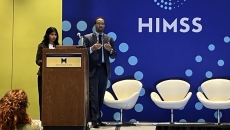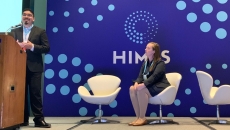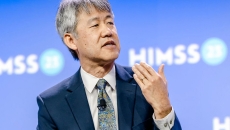News
Patients should be the focus, but developers need to consider the entire healthcare ecosystem too — including physicians and healthcare workers, said panelists at HIMSS23.
Mount Sinai Health System's Darryl Hollar and Cathleen Mathew discuss the importance of technology choice, clear communication and data reliability when implementing a remote patient monitoring program.
During a discussion at HIMSS23, panelists discussed the promise of AI while expressing concerns about its potentially unchecked evolution.
An El Paso-based health information exchange looked at how centralized data was of value to patient outcomes and improved provider stakeholder engagement and growth.
Integrating the cloud-based models into daily workflows will "increase productivity for many of our providers," says one CIO, "allowing them to focus on the clinical duties that truly require their attention."
At the HIMSS23 opening keynote discussion, artificial intelligence innovators debated about how to weigh the "tremendous opportunities" for healthcare algorithms with the "risks – some of which we may not yet know about."
From the impediments of artificial intelligence and its successes to its potential to save healthcare millions, "Where are we going to take it, and how do we drive value?" asked Tom Lawry at HIMSS23.
So says David Lareau, CEO of Medicomp Systems, a HIMSS23 exhibitor, who dives into these trends, and talks about actionable data at the point of care.
Clinicians must meet patients where they are in the ability to be engaged with their care journey and tailor engagement efforts to maximize resources, says Gary Hamilton, CEO of InteliChart, a HIMSS23 exhibitor.
Albert Marinez, chief analytics officer at Intermountain Health and a HIMSS23 attendee, talks AI, analytics and more.









